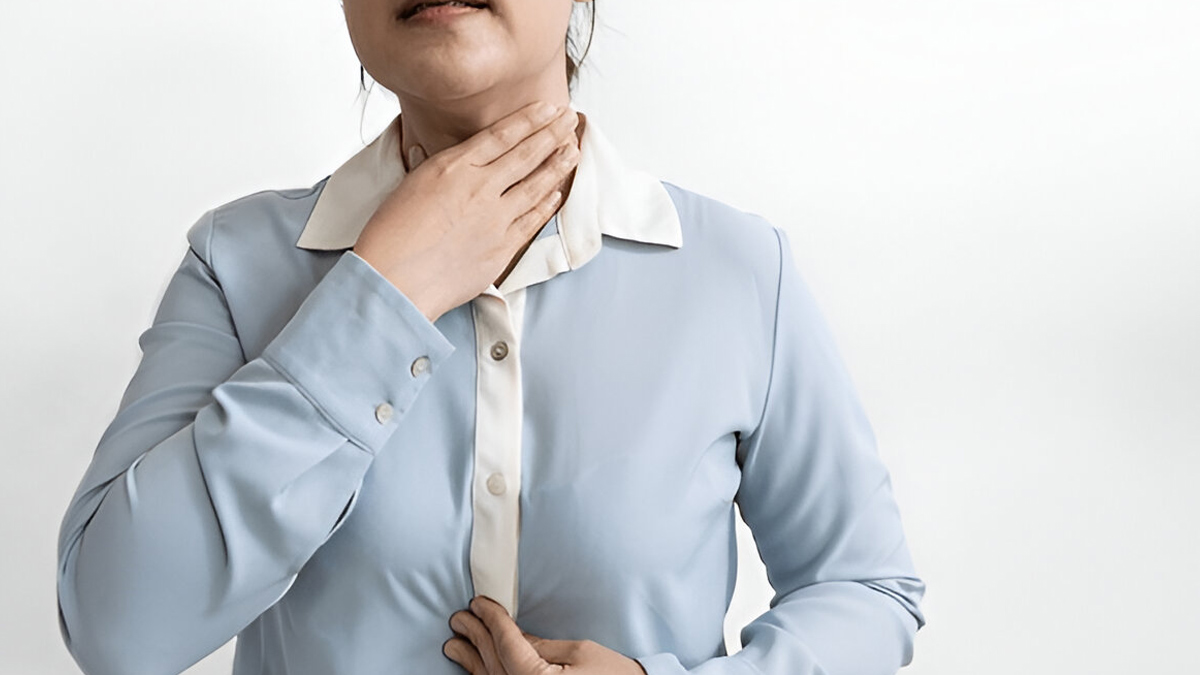
How many of us can’t start the day without that steaming cup of chai or coffee warming our hands and waking up our senses? That familiar comfort feels almost like a daily ritual, but what if the very heat that makes it so soothing could be quietly harming us? Recent findings have stirred up concern over whether drinking beverages that are too hot could raise the risk of cancer, sparking curiosity among tea and coffee lovers everywhere.
Table of Content:-
We spoke to Dr Hitesh Singhavi, Consultant - Head and Neck Oncosurgery, KIMS Hospitals, Thane, who answered if consuming hot beverages could give you cancer and what you should know.
It’s Not What, It’s How Hot

Here’s the query disarmed: it’s not coffee, tea, or any particular drink causing concern; it’s their scalding temperature. In 2016, the International Agency for Research on Cancer (IARC), part of WHO, classified ‘very hot beverages’ (around 65°C/ 149°F and above) as probably carcinogenic to humans, putting them in Group 2A alongside things like red meat or indoor wood smoke, but not because of the beverage itself, but because its temperature may harm the oesophageal lining.
But How Strong Is the Evidence?
IARC’s classification is about the strength of evidence, not how dangerous it is in daily life. Most of the human studies behind this conclusion are from regions where people traditionally drink ultra-hot beverages, like South America (mate), parts of Asia, and the Middle East.
When you look at broader population data, the connection is nuanced. A meta-analysis found that people who regularly consumed very hot food or drinks had about a 60% higher odds of developing squamous-cell oesophageal cancer, for hot beverages, the odds ratio was around 1.6 versus warm or cold ones.
In an eye-opening UK study (spanning nearly half a million participants), those who preferred their tea or coffee very hot had a higher incidence of Esophageal Squamous-Cell Carcinoma (ESCC), and interestingly, this rose in a dose-dependent way, regardless of whether it was tea or coffee.
In 1991, the IARC classified coffee as Group 2B was not mentioned but rather Group 2A (probably carcinogenic). However, after reviewing over 1,000 studies on humans and animals, conclusive evidence suggested otherwise, and coffee was subsequently removed from the list.
"A Chinese study found that drinking tea at high temperatures is associated with an increased risk of oesophageal cancer, particularly when combined with excessive alcohol or tobacco use. However, this study relied on self-reported tea consumption at baseline, which may have led to potential nondifferential misclassification and attenuation of the association," shared Dr Singhavi.
Also Read: Why You Burp Too Much After Tea and Coffee And Easy Fixes?
What’s Happening in Your Oesophagus?

The idea is that repeatedly sipping ultra-hot liquids can cause tiny burns or damage to the oesophagus lining. When your body keeps replacing those injured cells, it increases the odds of that ulcer turning cancerous. Animal experiments showed that very hot water (70°C) increased cell division and precancerous lesions, according to a 2021 study.
Should You Panick?
Not necessarily. There’s no solid evidence that hot liquids alone cause cancer, especially in Western contexts where oesophageal adenocarcinoma (not ESCC) is more common, according to Memorial Sloan Kettering Cancer Center. Lifestyle factors like smoking, heavy alcohol consumption, obesity, and acid reflux are far more established and serious risks.
How Common Is This Cancer?
"Oesophageal cancer isn’t the most common; globally, it’s a leading cause of cancer deaths, but its prevalence varies by region and type. It is a type of cancer that occurs in the oesophagus, the long tube that carries food from the throat to the stomach. ESCC, the one linked to hot drinks, is more common in parts of Asia, South America, and Africa," said Dr Singhavi.
Also Read: Oesophageal Cancer Is Rare But Challenging To Treat: Who Is At Risk?
Can You Still Enjoy Your Hot Drinks?
Here are some tips shared by Dr Singhavi that you should keep in your mind while sipping hot beverages:
- Let it cool: Often, waiting a minute or stirring brings a 10–15 °C drop, making a big difference.
- Opt for ‘warm-hot’ instead of ‘lava-hot’: It is recommended to avoid drink temperatures above 65 °C (149 °F).
- Take smaller sips: Large gulps of ultra-hot fluid heat your oesophagus more; hence, sip, don’t gulp.
- Focus on real risk factors like quitting smoking and moderating alcohol, which are way bigger contributors to oesophageal cancer.
Bottomline
Dr Singhavi concluded, "Yes, there isa probable link between drinking very hot beverages and oesophageal squamous-cell cancer, but the culprit is the temperature, not the drink. The risk increases with very high temperatures (65 °C+) and large quantities over time, especially combined with lifestyle risks. But for most people? Enjoy your tea or coffee, just let it cool and sip mindfully."
[Disclaimer: This article contains information provided by an expert and is for informational purposes only. Hence, we advise you to consult your professional if you are dealing with any health issue to avoid complications.]
Also watch this video
How we keep this article up to date:
We work with experts and keep a close eye on the latest in health and wellness. Whenever there is a new research or helpful information, we update our articles with accurate and useful advice.
Current Version
